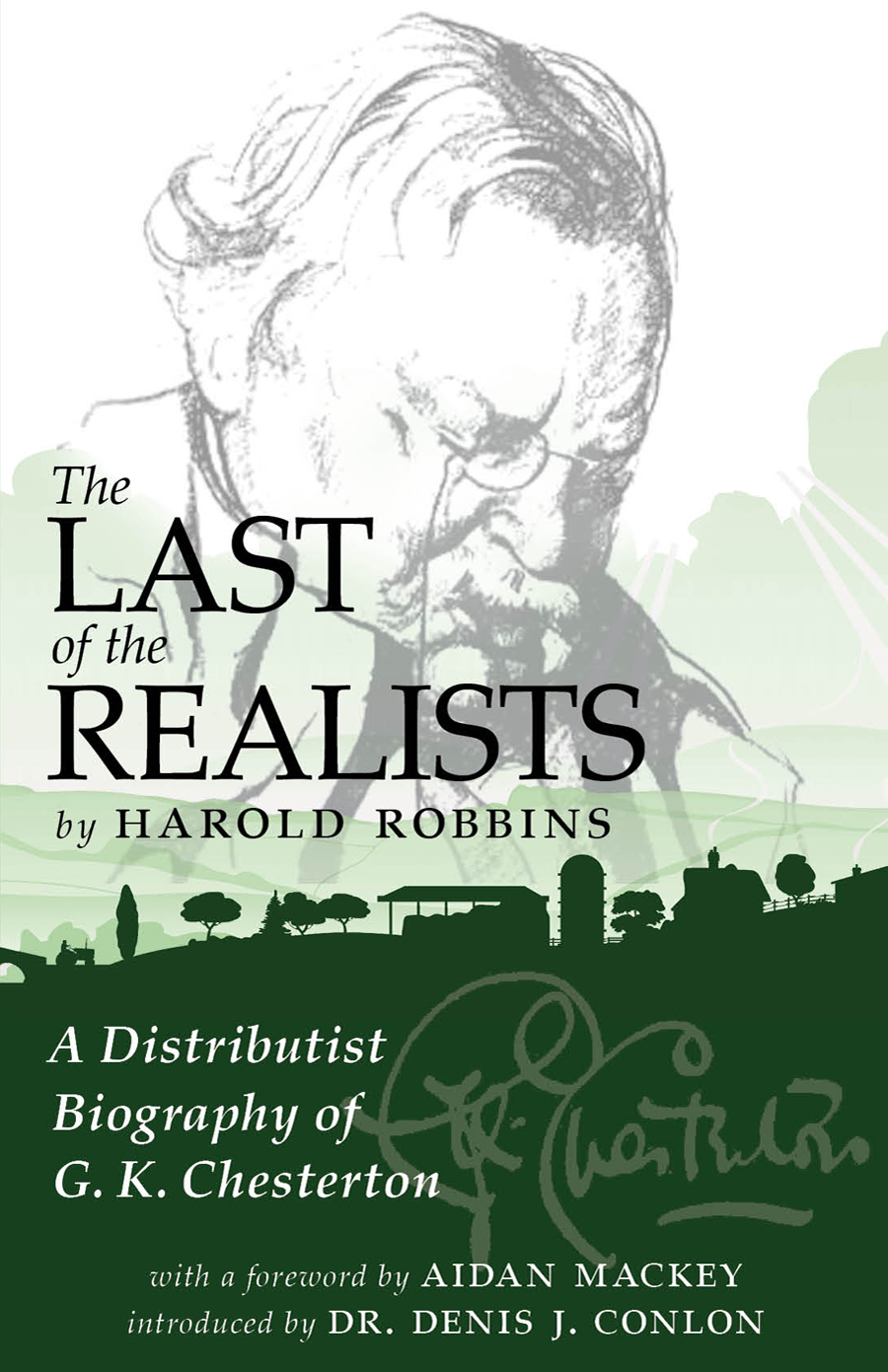
| ||||||||||
| ||||||||||
|
Click here at any time to see the contents of your shopping cart. |
There have been a great number of biographies of G.K. Chesterton published in the last quarter of a century. Some have been dismal; some have been informative and entertaining; some have been standard fare. In almost every case, Chesterton’s overriding interest and commitment to Distributism, expressed in books like The Well and the Shallows and The Outline of Sanity, as well as in G.K.’s Weekly, is dealt with either by near complete silence or by “apologizing” for G. K.’s supposed lack of political correctness and parodying his political and social point of view. The fact remains, however, that G.K.C. had a thorough-going world view which was wholly compatible with his Catholicism but which, at the same time, was accessible to anyone who was concerned with the human person and his welfare, with the community, with the need for justice, equity and political integrity, and for a new arrangement of society whereby the Common Good was found by seeking the good of the Common Man. Never-before published in book form, but only serialized in a small journal during the paper-shortage years of the 1940s in England, this short biography by Harold Robbins, one of Chesterton’s provincial co-workers, who remained an active Distributist all his life, rights this wrong by telling the Distributist story of Chesterton from first-hand experience. It demonstrates that Chesterton did not seek a literary crown from “respectable society,” but sought to make society respectable through giving justice to all. Chesterton felt that political debate, political writing, and political campaigning and activity were of the essence to one of the great loves of his life: England. Chesterton was a Catholic patriot, a man of integrity and one who sacrificed time, money, health and reputation in order to advance the cause of England, the Common Man, and the Church. Robbins’ biography is neither definitive nor all-encompassing. But what it does do is arranged, against a background of generally known facts, a whole galaxy of unknown facts which change one’s view of Chesterton in a most radical way. No one can claim to “know” G.K.C. until he has read and digested the contents of this small but important work. The new introductions by the world’s two leading Chestertonians are simply the icing on this already substantial, unique, and engrossing cake. Foreword —Dr. Denis Conlon Introduction —Aidan Mackey 1. The Reason for this Book 2. The Prophet and the Lunatics 3. The Man 4. The Man’s Work 5. The Foundation Distributists 6. The Papers and the League 7. The Catholic Land Movement 8. The Great Deferment 9. His Place Among the Prophets Appendix A. The Birmingham Scheme Appendix B. A Note on the Marconi Case Appendix C. The Holy See and Distributism | |||||||||||||||||||||||||||||||||||||||||||||||||||||||||||||||||
| Attention bookstores: call or e-mail today for orders in quantity with the standard trade paperback discount: |
IHS Press 222 W 21st St. Suite F-122 Norfolk, VA 23517 877-IHS-PRES (877.447.7737) query@ihspress.com |
||

